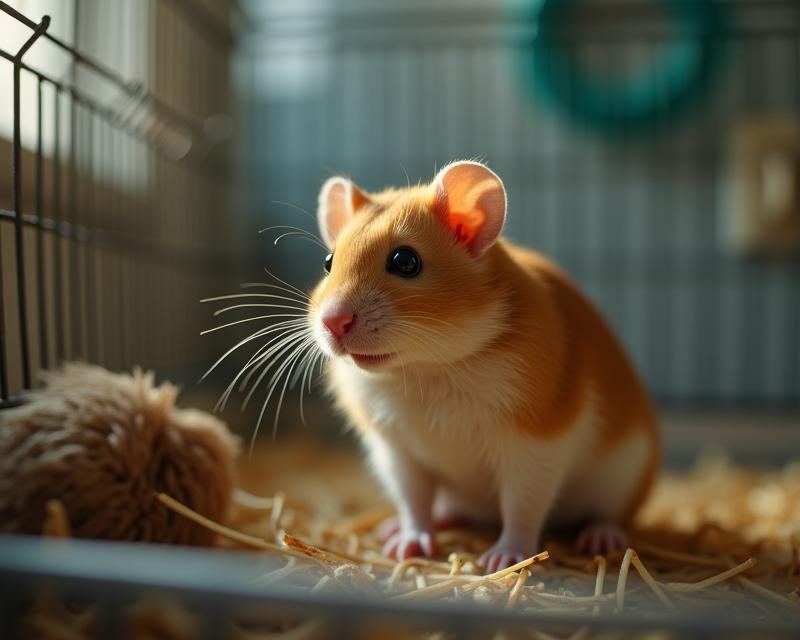Hamster's Changed Behavior: What's Going On?
Publish in Health el 28/06/2025 19:07
Is Your Hamster Acting Different?
We love our furry little friends, and we know them so well! It can be unsettling when our hamster suddenly starts acting differently, especially if it's a change in behavior we haven't seen before. One common concern from hamster owners is when their hamster seems to ignore commands or cues it used to readily respond to – a situation that can be particularly worrying after a trip to the vet.

Post-Vet Stress & Recovery
If your hamster recently visited the emergency vet clinic, it's important to remember that even a short trip can be stressful for a small creature. The sights, sounds, and smells of a veterinary environment are completely foreign and potentially frightening. This stress can manifest in behavioral changes. Your hamster might be more withdrawn, less playful, or, as you've noticed, less responsive to commands it once understood. Think of it like a little person experiencing a big shock – it takes time to recover!
Understanding Hamster Communication
Hamsters communicate primarily through body language and scent. They learn routines and associate certain actions with rewards (like treats!). If the routine was disrupted by the vet visit, or if your hamster is still recovering from any procedures, it might not be able to focus on those learned associations. For example, if you usually call your hamster to come to your hand for a treat, it might not respond if it's feeling anxious or unwell. Patience is key here! Don't force interactions.
What Can You Do?
The best thing you can do is provide a calm and comfortable environment for your hamster to recover. Ensure its cage is quiet, secure, and has plenty of hiding places. Offer its favorite foods and water, and avoid any sudden movements or loud noises. Gradually reintroduce familiar routines, starting with short, positive interactions. Offer treats when your hamster *does* respond to a cue, even if it's just a small movement. Most importantly, monitor your hamster closely for any other signs of illness or distress. If the behavioral changes persist for more than a few days, or if you notice any other concerning symptoms (loss of appetite, lethargy, changes in droppings), consult with your veterinarian. They can rule out any underlying medical issues and provide guidance on how to help your hamster get back to its normal, happy self.
- Provide a quiet and secure environment.
- Offer favorite foods and water.
- Gradually reintroduce routines with positive reinforcement.
- Monitor for other signs of illness.





